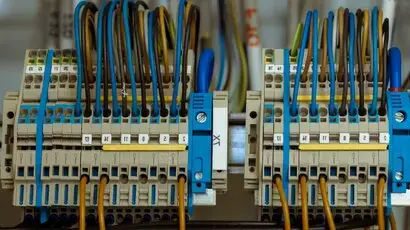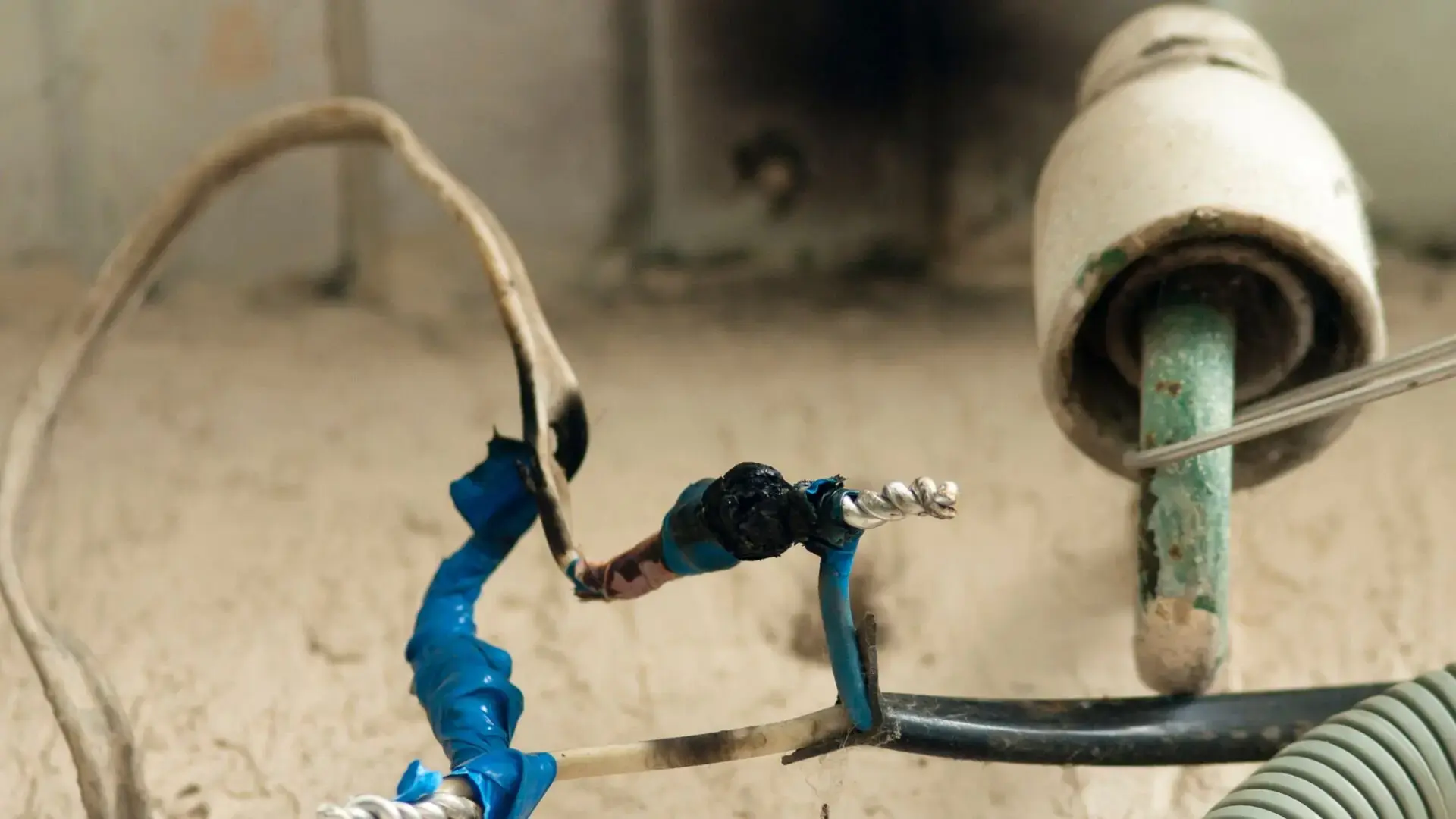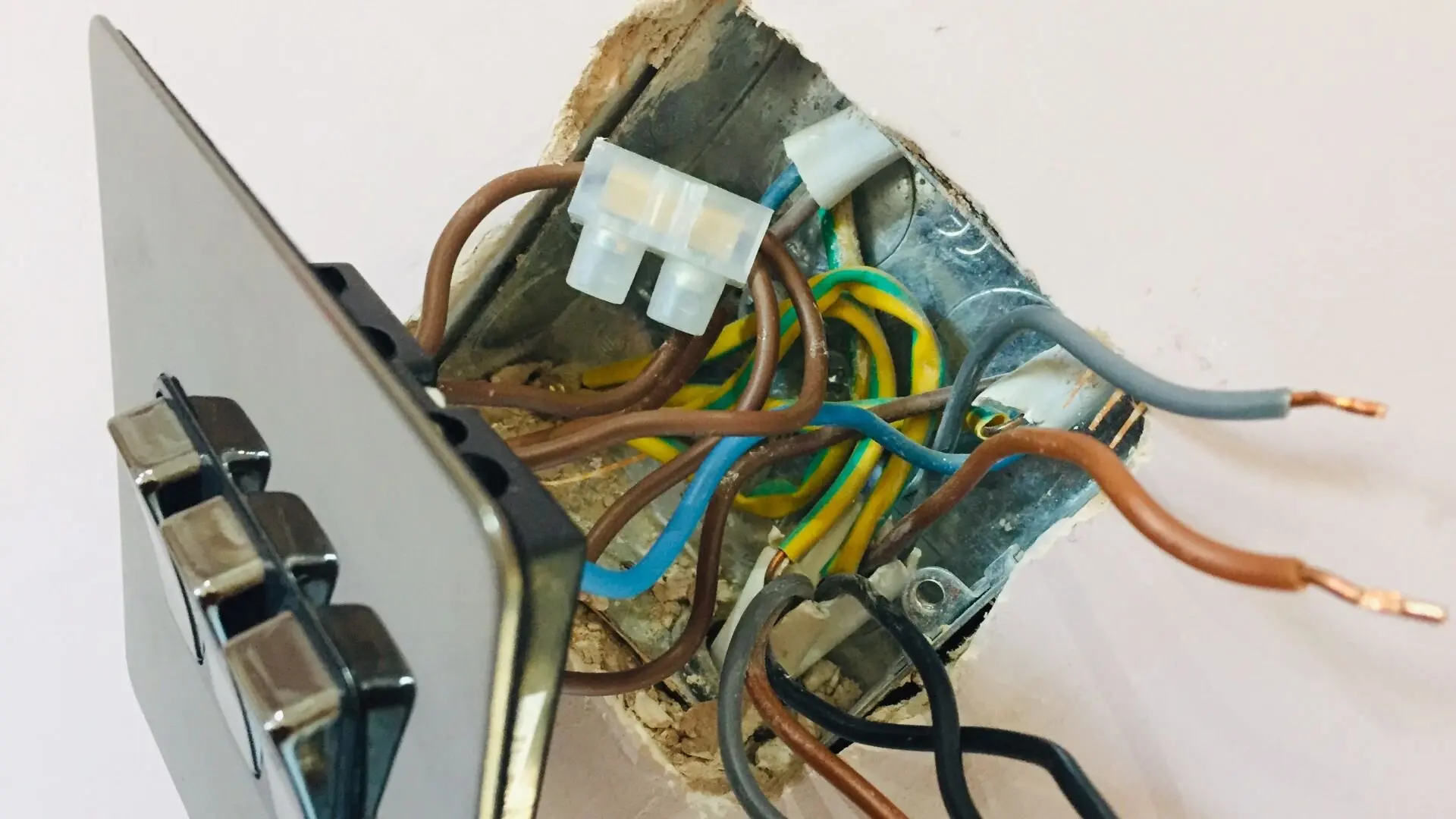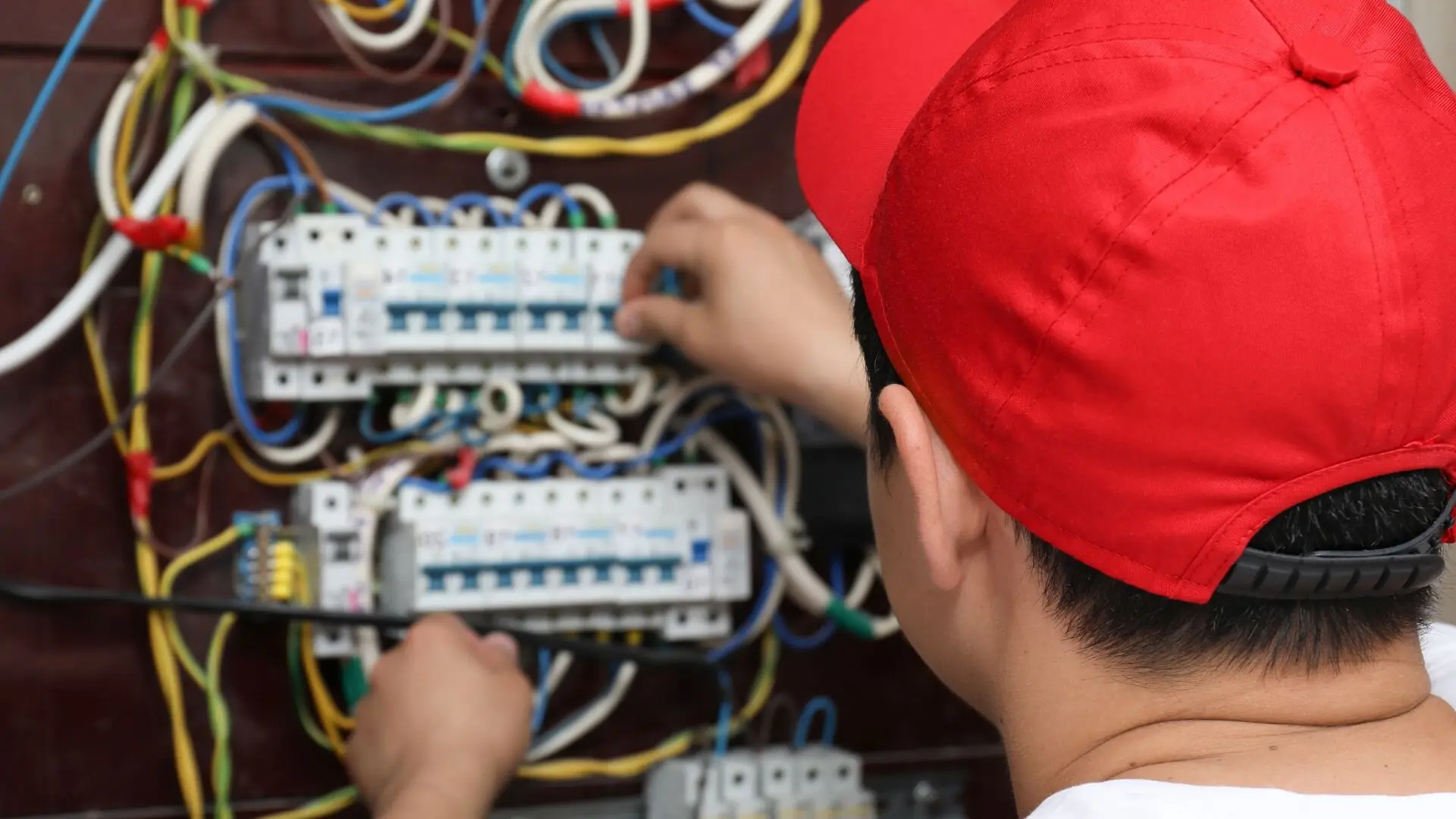
Get your free Melbourne Electrician quote today!
Our team of Melbourne Electricians is here to help you with any questions or concerns you may have. We’re committed to providing you with the best possible service and support.
Older homes hold a special charm, but their electrical systems often lag behind modern needs. Ensure your home’s safety and functionality with these key electrical wiring upgrades. This guide explores the importance of a modern electrical panel, grounded outlets, GFCI protection, and additional circuits to power your appliances and electronics.
Imagine grabbing the toaster, only to hear that all-too-familiar click of a tripped circuit breaker. Or maybe you find yourself wrestling with extension cords just to charge your phone and laptop each night. Unfortunately, this scenario is common in many Aussie homes with outdated electrical wiring .
While upgrading your home’s electrical system might seem daunting, it’s a worthwhile investment in both safety and functionality. Let’s dive into the numerous benefits of updating your home’s wiring and why it remains the safest, most effective choice!
Signs Your Home Needs Electrical Wiring Upgrades

- Frequent Tripping of Circuit Breakers: This often suggests that your home’s electrical panels are overloaded. Modern homes require more power for a variety of devices, such as air conditioners, computers, and game consoles.If circuit breakers frequently trip, it’s a sign that your existing wiring can’t handle the demand.
- Flickering or Dimming Lights: If the lighting in your house dims or flickers, especially when other electrical appliances are used, this could indicate an issue with your wiring system.
- Warm Outlets or Switches: Outlets or switches that feel warm to the touch are a potential fire hazard and should be checked by a licensed electrician.
- Buzzing or Crackling Sounds from Outlets: These noises can signal loose or faulty wiring and are a significant safety hazard.
- Presence of Two-Prong Outlets: Many older houses still have ungrounded two-prong outlets, which do not meet modern electrical safety standards and must be upgraded to three-pronged, grounded outlets.
- Reliance on Extension Cords and Power Boards: If you’re frequently using extension cords or power boards, it hints that your home could do with more outlets. Over-reliance can cause wires to overheat, potentially leading to fires.
The Dangers of Outdated Electrical Wiring
Dealing with outdated or faulty wiring is more than a hassle; it’s a serious safety issue. It heightens the risk of electrical fires, which can engulf your home quickly. Additionally, old systems like knob and tube wiring might not meet current building codes, posing extra fire and safety risks.
Old wiring often struggles to handle the load from today’s numerous appliances, resulting in overloaded circuits that pose fire or shock hazards. Moreover, without modern safety switches, these systems are far less effective at preventing electrical accidents.
The Importance of Upgrading Your Home’s Electrical System
Upgrading your home’s electrical wiring is crucial for safety and efficiency. A qualified electrician can add circuits and more outlets, allowing you to distribute electricity safely throughout your home. This upgrade often involves replacing old wires, installing new electrical panels, and ensuring all installations meet the electrical safety codes.
Rewiring an older home not only enhances electrical safety but also supports the efficient operation of modern appliances and security systems, ultimately contributing to the overall fire safety and security of your dwelling. For any electrical work, always engage a professional electrician or electrical contractor familiar with the vast majority of houses built in your area and adhere strictly to the Australian standards for home electrical systems.
Benefits of Upgrading Electrical Wiring
Upgrading your house’s electrical wiring offers many benefits, from enhancing safety to boosting your home’s market value. Let’s explore why engaging in this essential electrical work is vital for most homeowners, mainly if you live in one of many older homes.

Enhanced Safety
[Safety is a primary concern regarding home electrical systems](https://wpelectricians.com.au/blog/electrical-system-safety-inspection), especially in old houses. A wiring upgrade significantly mitigates the risk of electrical fires and shock hazards. Proper grounding in newly installed wiring ensures a safer living environment. [Many homeowners overlook the potential safety issues in outdated systems](https://wpelectricians.com.au/blog/electrical-safety-tips-homeowners), which can be rectified by professional rewiring.
[The importance of Ground Fault Circuit Interrupter (GFCI) outlets](https://wpelectricians.com.au/blog/location-gfci-outlets) cannot be overstated. Installed in kitchens, bathrooms, and laundry rooms, these outlets protect against electric shock by quickly cutting off power when moisture is detected. This feature is particularly important in these high-risk zones.
Improved Functionality
Modern lifestyles demand more from our electrical systems than ever before. A wiring upgrade enhances your house’s system’s capacity, allowing multiple devices and appliances to be used without overloading the circuits. This is a crucial update for homes built several decades ago, which weren’t designed to handle today’s power consumption levels.
A wiring upgrade means increased capacity and more strategically placed power outlets throughout your house. This allows greater flexibility and convenience in your spaces and ensures that lights, appliances, and other devices can be operated more effectively.
Increased Home Value
Updating the electrical wiring in your house can also increase its market value. Many homeowners find a house with modern, compliant, and safely installed electrical systems more attractive to potential buyers. This makes a wiring upgrade a wise investment, making your home safer, more functional and more appealing in the real estate market.
Future-Proofing
Lastly, a wiring upgrade is an excellent way to future-proof your home. It ensures that your electrical system can accommodate future technological advancements and the growing number of devices that require electrical power. By upgrading now, you prepare your home to meet future demands, avoiding the hassle and expense of frequent minor upgrades.
What to Expect During an Electrical Wiring Upgrade in Australia

- Initial Consultation with a Licensed Electrician: Discuss your needs and assess your existing system. They will be able to identify potential safety hazards and advise on the most up-to-date solutions to bring your wiring in line with current regulations.
- Inspection of Existing Electrical System: Identify any areas needing upgrading. This may involve uncovering walls and ceilings to access hidden wiring so the electrician can provide a thorough assessment.
- Development of a Plan and Quotation: Outline the recommended work and its cost. This will give you a clear picture of the project scope and budget, allowing you to make informed decisions.
- Obtaining Permits (if necessary): The electrician can help ensure your project complies with all local regulations. Depending on the scope of the work, permits may be required.
- Upgrading the Electrical Panel (if overloaded or outdated): A modern panel will provide increased capacity and safety features to meet the demands of your modern appliances and future electrical needs.
- Installing New Wiring and Outlets: Meet your current and future electrical demands. This may involve strategically placing outlets in kitchens, bathrooms, and laundry rooms to accommodate future renovations or appliance upgrades.
- Testing and Safety Checks: Ensure everything is functioning correctly and safely. The electrician will use specialised equipment to verify that your new wiring meets all safety standards.
Live Safely and Conveniently
Your home should be your sanctuary—safe and functional! To keep it that way, make regular maintenance checks a priority. Electrical wiring, especially, can be a hidden danger lurking unnoticed.
Hire a licensed electrician for all electrical work. Their expertise reduces fire risks and ensures quality work. For a free consultation or quote on electrical wiring repairs or upgrades, contact WP Electrical and keep your home safe and bright!
Published by: Pascal Harb17 October 2025